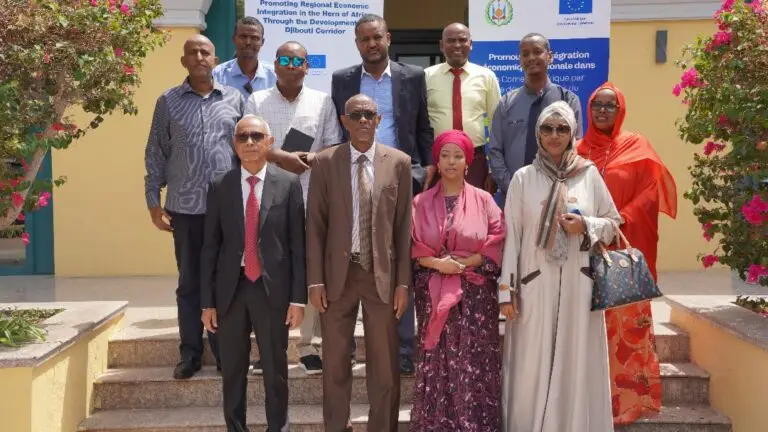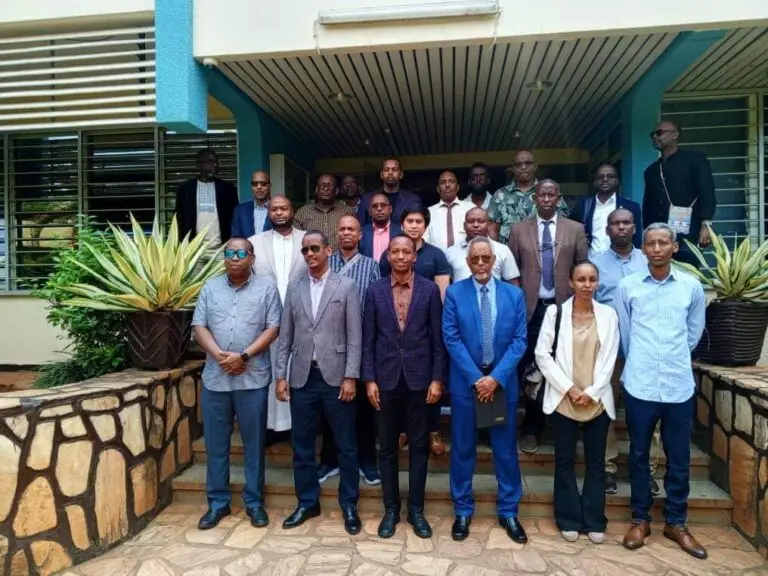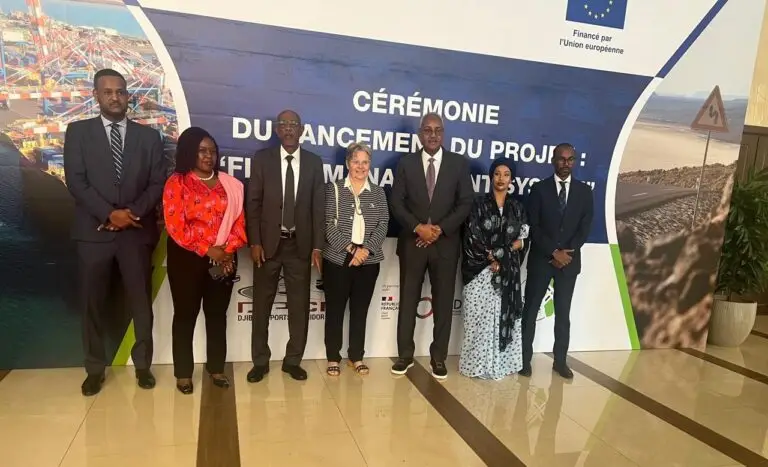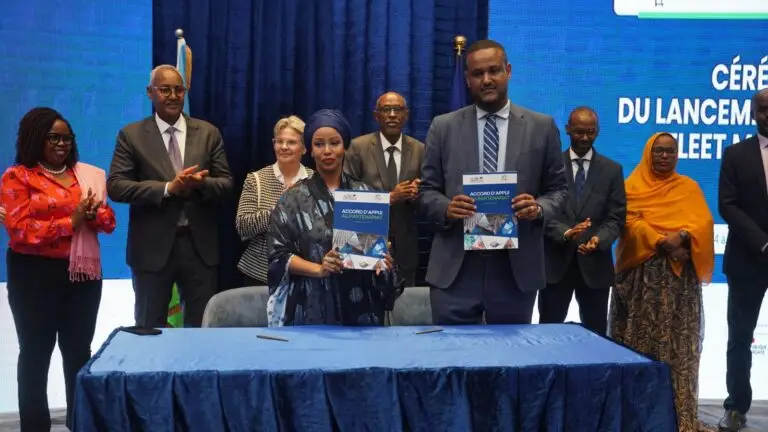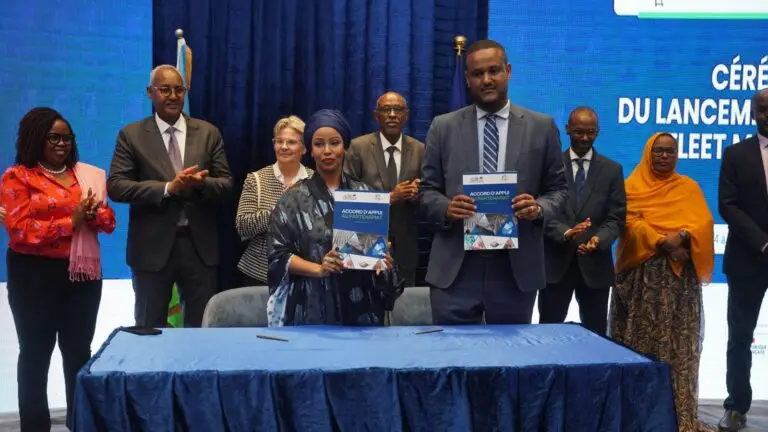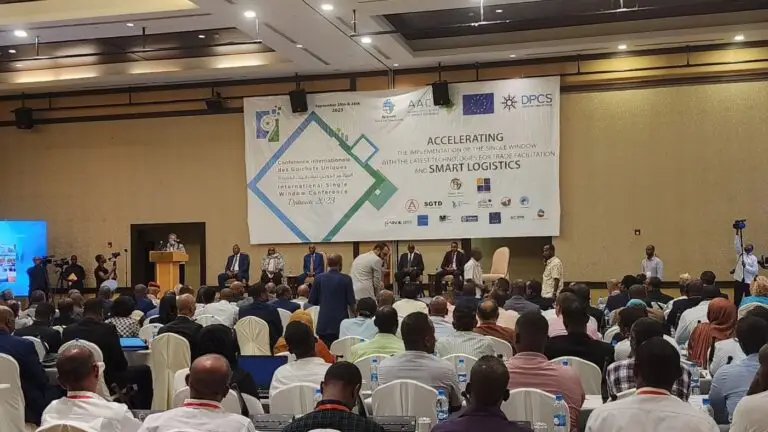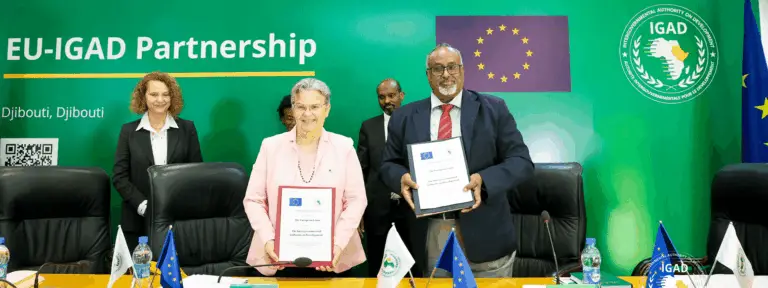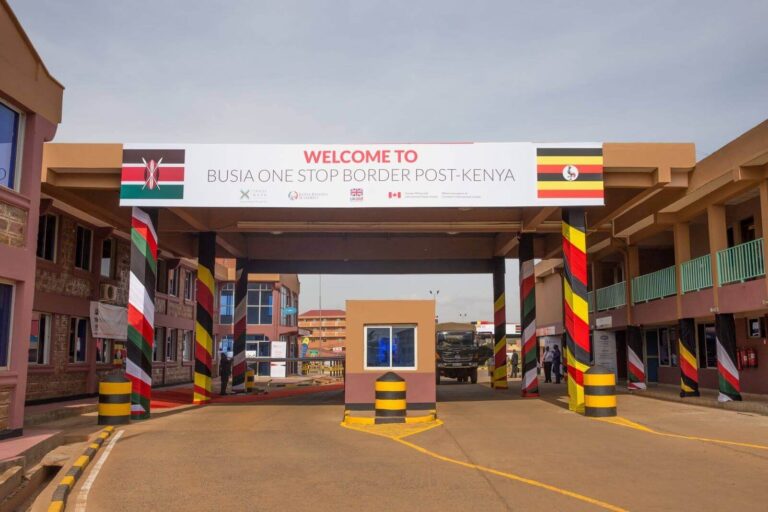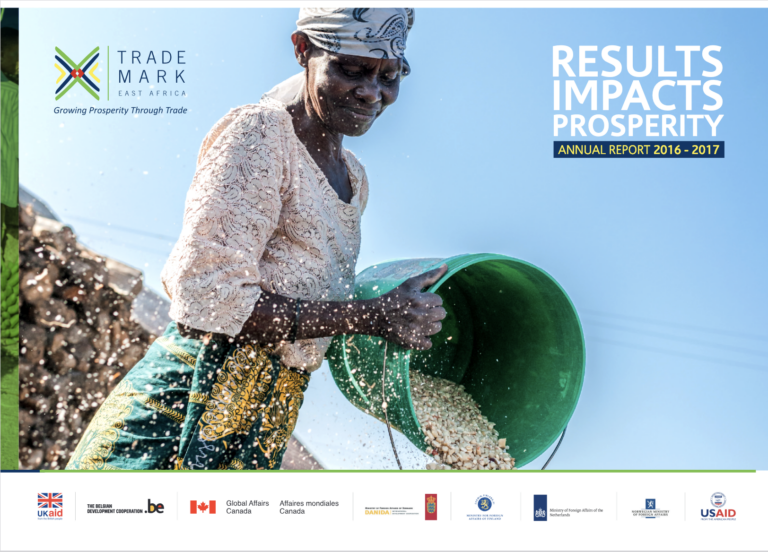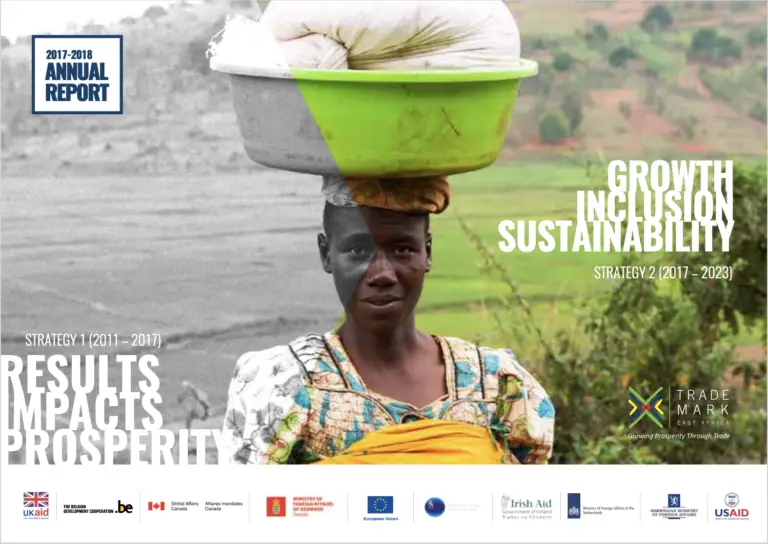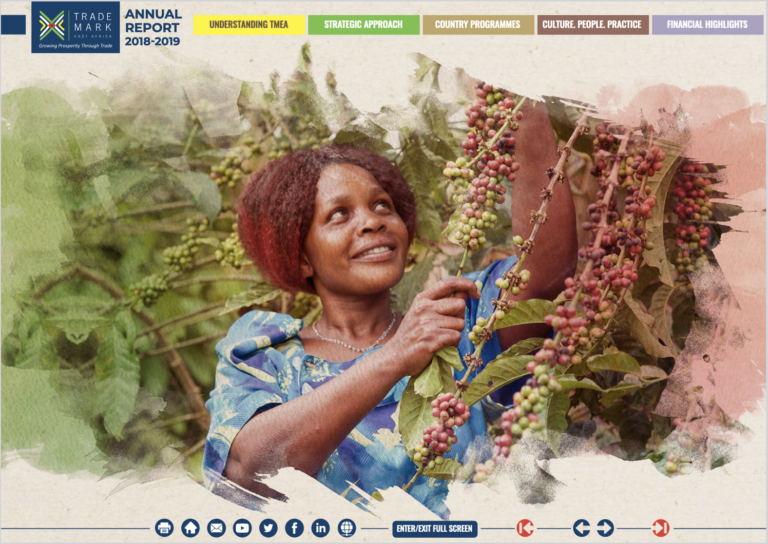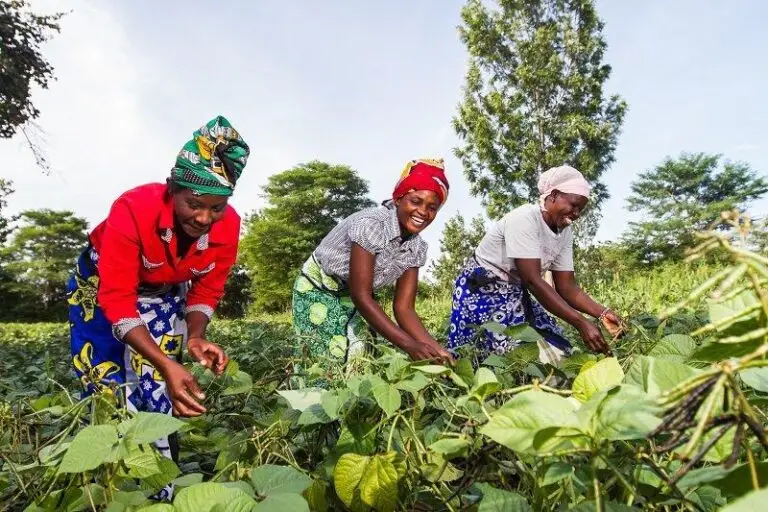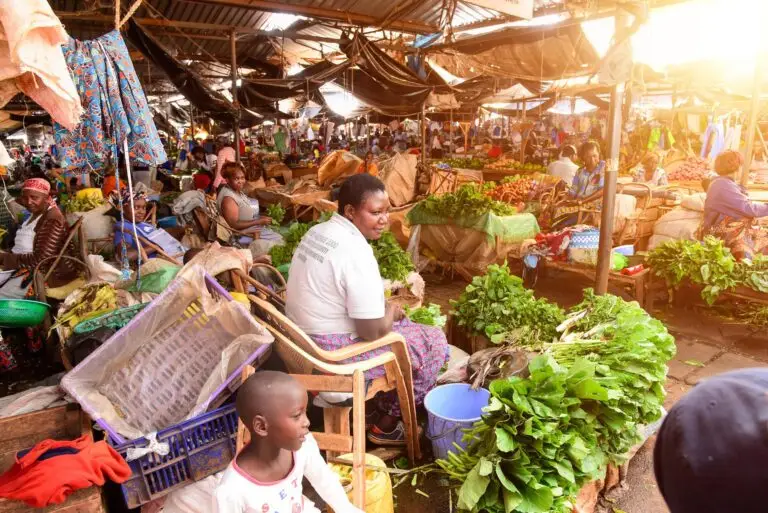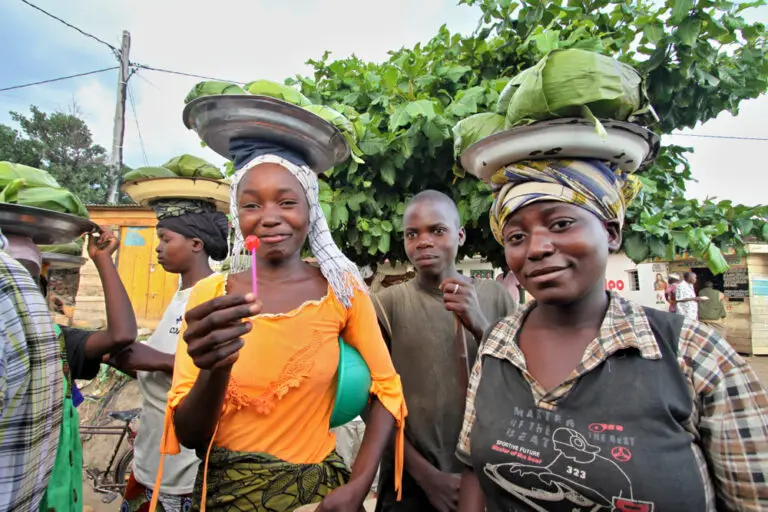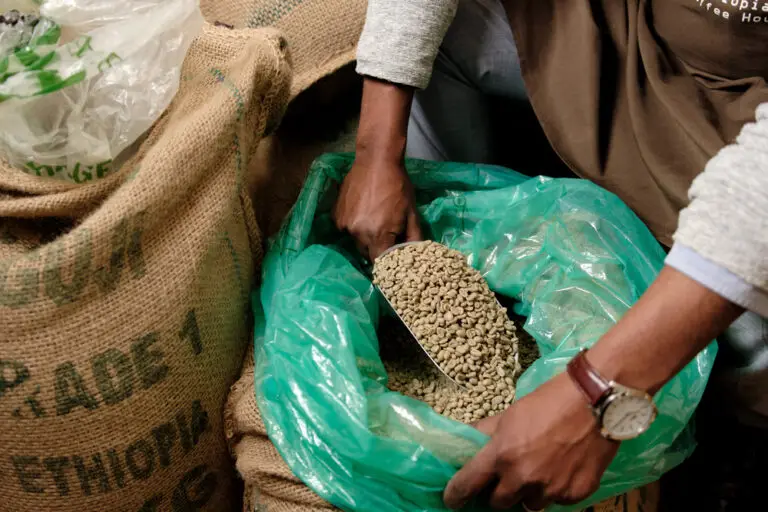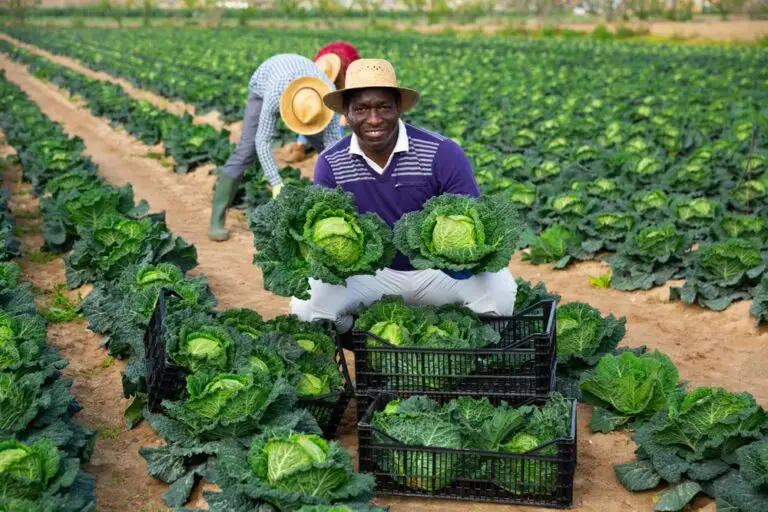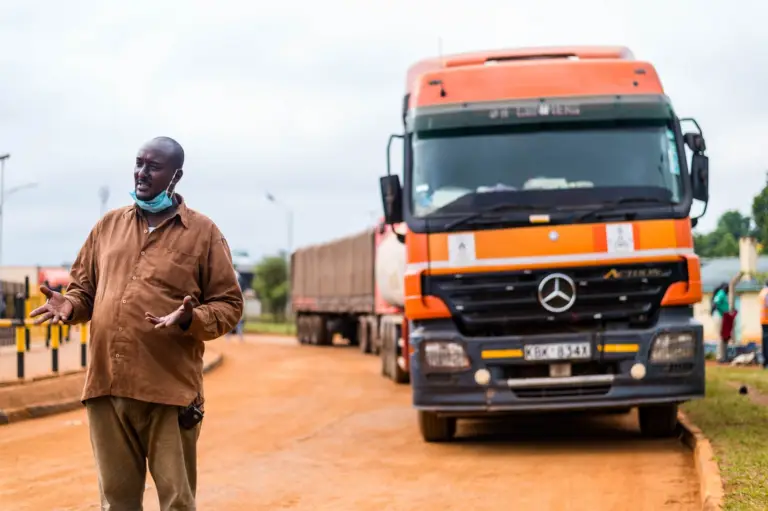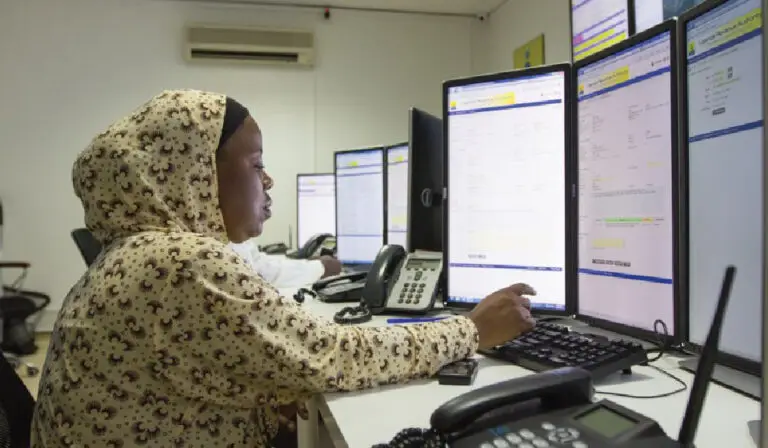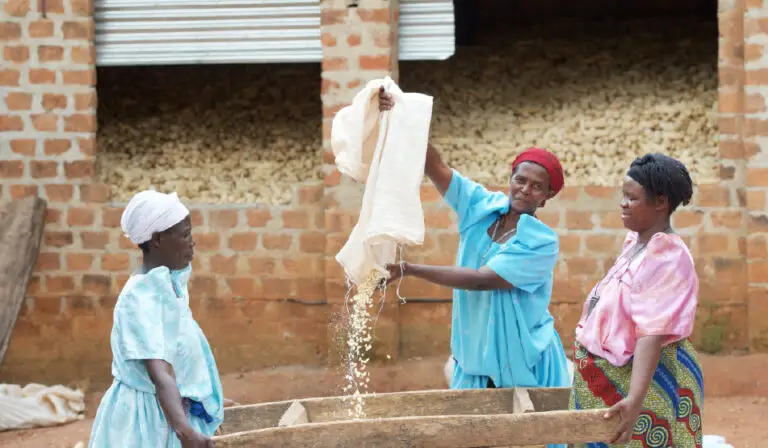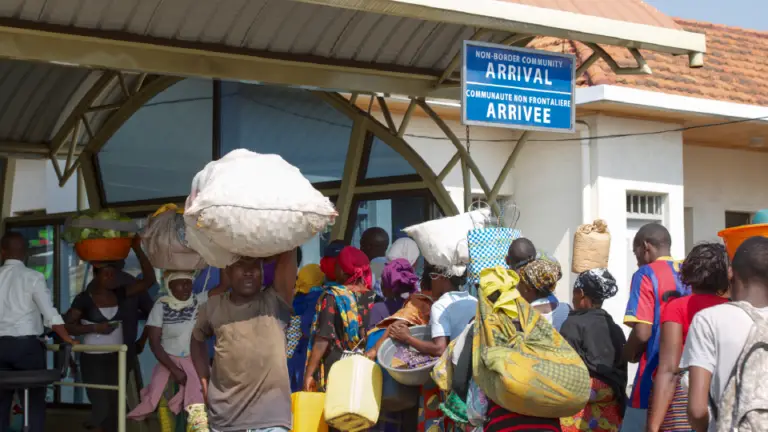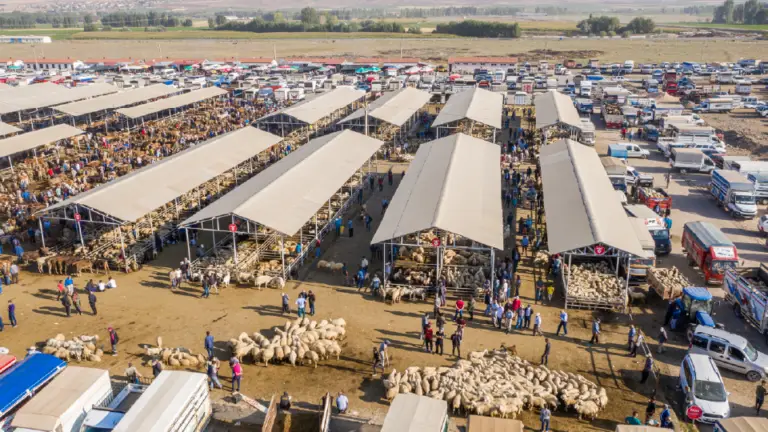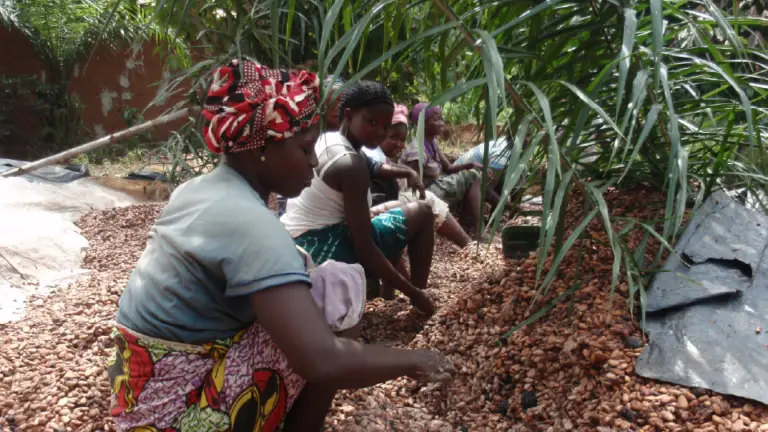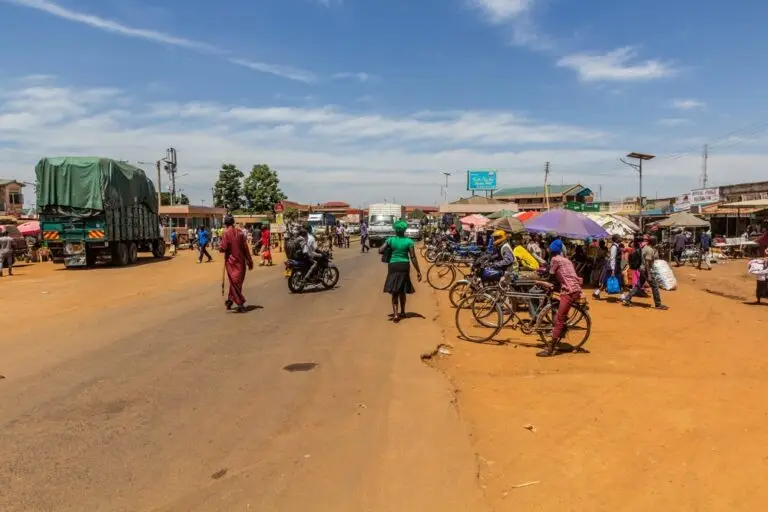Quick Stats
Djibouti
1.1 Million (2024)
$4.1 Billion (2024)
2021
Addis-Djibouti
Raw Sugar (8%) Seed Oils (7%), and Cars (6%)
- Population and GDP size- World Bank Data – https://data.worldbank.org/indicator
- Trade- OEC- https://oec.world/en/profile/country/
Djibouti’s location at the southern entrance to the Red Sea, along one of the world’s busiest maritime routes, the Bab el-Mandeb strait, positions it as an important trade and logistics hub in the Horn of Africa. Its ports provide maritime access for landlocked Ethiopia, handling over 90% of Ethiopia’s sea-born trade, and serve as a gateway for broader regional trade and transshipment
23,200 sq kms
1.1 Million people
Djibouti’s economy is largely service based, driven by port operations, transport, and logistics. The Government’s development framework, Vision 2035, outlines ambitions to transform the country into a commercial and logistics hub for the continent.
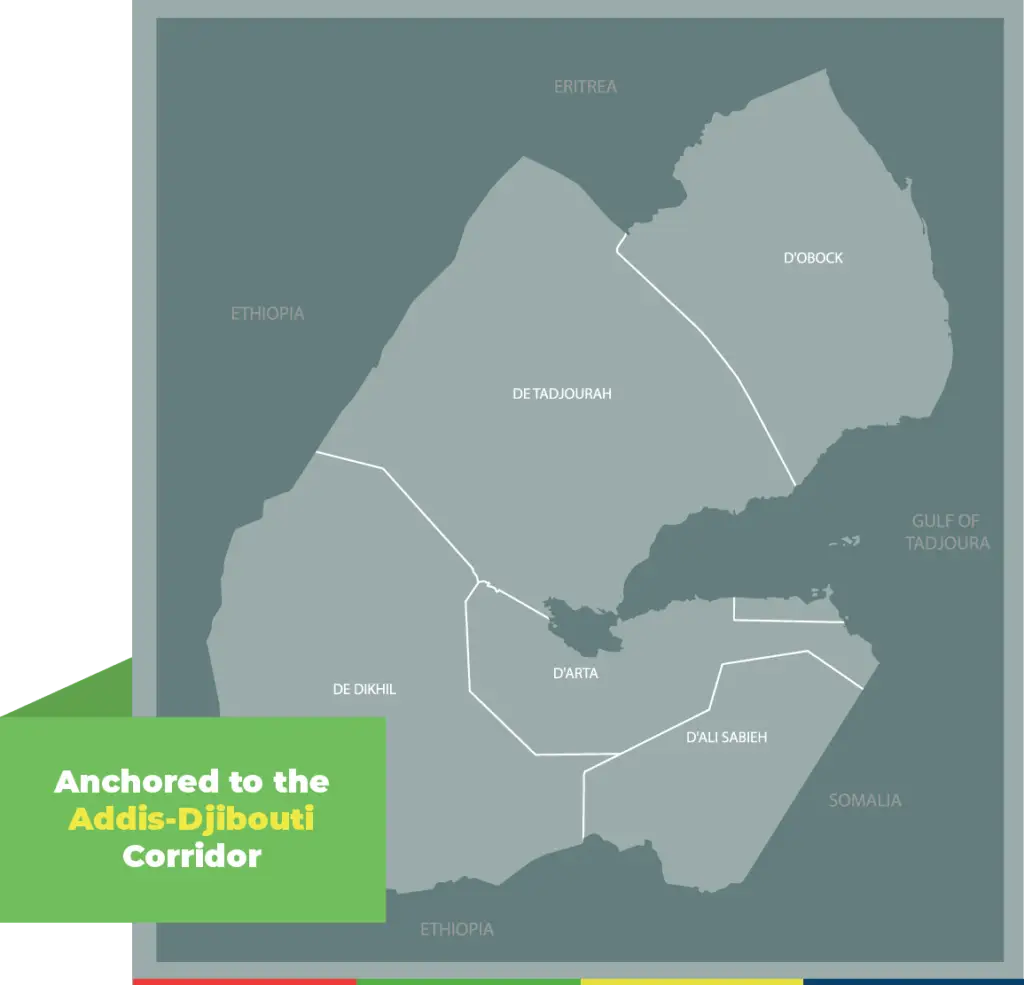
Within this agenda are infrastructure investments, including the Djibouti-Addis Ababa Standard Gauge Railway, expansion and automation of port facilities, and digital trade systems, such as ASYCUDA, the Port Community System, and the Maritime Single Window – all helping to reduce port clearance times and improve customs efficiency. The country’s growth model, however, remains heavily reliant on public infrastructure spending, and as flagged by the International Monetary Fund, public debt is estimated at 68% of GDP. In addition, regional political dynamics and continued disruptions in Red Sea shipping lanes expose Djibouti’s economy to external risks. In this context, TMA is supporting Djibouti to modernise trade systems, strengthen regulatory frameworks, and build a resilient and inclusive competitive trade environment.
Early Milestones
Since 2021
TMA formally established its Djibouti programme in 2021, during the height of the COVID-19 pandemic. In the early years, it partnered with the government to strengthen institutional frameworks, and safeguard trade during a period of severe disruption. Working alongside the Government of Djibouti and IGAD, TMA co-designed an emergency trade and health response that helped keep critical border operations running, protected frontline workers with PPE across port terminals and border posts, and facilitated the vaccination of 4,500 cross-border truck drivers under a bilateral agreement with Ethiopia.
At the same time, TMA supported the revival of Djibouti’s National Trade Facilitation Committee and facilitated the classification of the country’s commitments under the WTO Trade Facilitation Agreement, an essential step in aligning with global trade rules. In parallel, TMA began enhancing trade logistics through infrastructure assessments and preparatory work for upgrading the Galafi border post and the PK-51 logistics hub. Support was provided to the Djibouti Agency for Standards and Quality (ADN) to begin benchmarking its systems against regional counterparts in Kenya and Rwanda. This also included training in international quality frameworks such as HACCP and ISO, along with steps to harmonise food safety standards, inorder to de-risk Djibouti’s supply chains and improving market access.
Modern Infrastructure and Corridor Efficiency
This encompasses facilitating investment in trade infrastructure, including border facilities and truck marshalling yards, and enhancing corridor performance along the Djibouti-Ethiopia trade route. Improved coordination, data collection, and logistics management systems will reduce delays, increase transparency and boost cost efficiency.
Sustainable Trade and Logistics
In line with TMA Strategy 3, the programme will embed climate resilience into corridors and port operations, through modal shift initiatives, sustainable port policies and practices, and renewable energy solutions at border posts.
Women and Youth in Logistics
TMA is encouraging more youth and women participation in logistics and high potential sectors such as cool logistics and fisheries. Interventions include more vocation training support for digital platforms and enterprise incubation, and the formalisation of women-led businesses to enhance access to finance.
Digital
Systems
TMA is driving the integration of customs, port and regulatory platforms. Interventions will include an electronic cargo tracking system, fleet management, and roll out of a national trade information portal. In June 2024, TMA supported the Government of Djibouti to begin development of a fleet management system that will improve efficiency and lower costs. A comprehensive traffic survey has provided data on truck volumes and border dwell times to inform future improvements.
Supporting Standards and Export Readiness
TMA is facilitating the strengthening of regulatory and standards institutions infrastructure to meet international benchmarks by supporting regulatory alignment, enhanced laboratory capacity, and encouraging private sector awareness of export requirements. These are all important for enabling cross-border recognition and unlocking higher value markets.
TMA Strategy 3
2023 - 2030
In the new phase, TMA will double down its support to the Government of Djibouti to operationalise the Djibouti–Addis Corridor Management Authority. This will be complemented by the rollout of digital systems to enhance cargo tracking, traceability and logistics efficiency. Efforts will also focus on strengthening institutional capacity for trade facilitation, ensuring alignment with AfCFTA and WTO frameworks. A deliberate push will be made to foster inclusive economic participation, with targeted support for SMEs and women-led enterprises in select value chains. Programming is clustered around the following broad areas.
Digital Trade Systems
Green Trade
Resilient and Inclusive Trade
Value and Quality of Traded Goods
Physical Infrastructure
Trade and Investment Environment
- To improve corridor efficiency through better connectivity, TMA will facilitate investment in trade infrastructure, including border facilities and truck marshalling yards, and enhancing corridor performance along the Djibouti-Ethiopia trade route. Improved coordination, data collection, and logistics management systems will reduce delays, increase transparency and boost cost efficiency.
- Digital integration of customs, port and regulatory platforms which includes interventions such as electronic cargo tracking system, fleet management, and roll out of a national trade information portal. In June 2024, TMA supported the Government of Djibouti to begin development of a fleet management system that will improve efficiency and lower costs. A comprehensive traffic survey has provided data on truck volumes and border dwell times to inform future improvements.
- Achieving export competitiveness begins with meeting international standards, particularly sanitary and phytosanitary (SPS) Building on foundation work in the previous years, TMA is facilitating Djibouti to further strengthen its standards infrastructure and regulatory capacity through alignment with international protocols, enhancement of laboratory testing and certification facilities, and improved coordination across competent authorities. capacity, and encouraging private sector awareness of export requirements. These are all important for enabling cross-border recognition of goods and unlocking access to higher value markets.
- In line with TMA Strategy 3, the programme will embed climate resilience into corridors and port operations, through modal shift initiatives, sustainable port policies and practices, and clean energy solutions at border posts.
- In partnership with private sector, programmes that promote greater participation of women and youth in high-potential sectors such as fisheries and cool logistics, that offer viable pathways for employment and value addition will be prioritised. Interventions will include vocational training aligned to emerging digital platforms, enterprise incubation for youth-led start-ups, and targeted support to formalise women-led businesses, thus enhancing their access to finance.
- Vaccinated more than 20,000 long distance truck drivers and supplied over 900,000 personal protective equipment’s, protecting the region’s logistics workforce during the pandemic.
- Engaged 4,000+ truck drivers, through targeted briefings on public health protocols and trade resilience measures.
- Co-developed the national and regional guidelines for uninterrupted flow of goods in health crises – now the referenced framework for IGAD member states.

COUNTRY DIRECTOR, DJIBOUTI
Dr Achaa is a leading voice in trade logistics and port economics across the globe with over 20 years of experience as an academic, researcher, and policy influencer. Since 2023, she has served as TMA’s Country Director, spearheading efforts to modernise trade systems and deepen regional integration. Her portfolio includes the EU-funded Djibouti Corridor Programme and, previously, USAID’s Economic Resilience and Regional Activity (ERRA), which target to enhance trade and transport efficiency through innovations such as electronic cargo tracking, fleet and cold chain systems, and the establishment of a corridor management authority between Djibouti and Ethiopia.
Prior to joining TMA, Dr Achaa was Dean of the Business and Management Institute at the University of Djibouti, where she led academic and research programmes in transport and port management. Her published work has shaped policy and operational reforms across the region. She holds a PhD in Economics and Management from the University of Perpignan, France, with a specialisation in international transport and port strategies.



